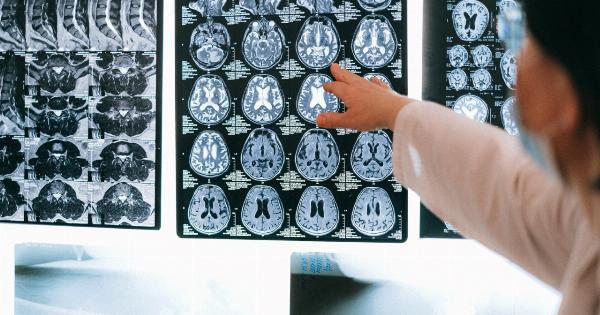Did you know that your hands can reveal a lot about your health? Many health conditions can show up in the appearance and function of your hands, making it a key indicator of your overall well-being.
By learning how to read your hands, you can identify potential health concerns and take action to maintain good health.
1. Cold Hands
Cold hands can be a sign of an underactive thyroid gland, a condition known as hypothyroidism. This occurs when your thyroid gland, which regulates your metabolism, does not produce adequate thyroid hormones.
Other symptoms of hypothyroidism include fatigue, weight gain, and dry skin. If you frequently experience cold hands, it is important to talk to your doctor and get your thyroid hormone levels checked.
2. Pale Hands
Pale hands can indicate poor circulation, which can be caused by a variety of factors such as underlying vascular disease, heart disease, or peripheral artery disease.
If you notice pale or blue hands, especially in cold weather, it is important to talk to your doctor and get a complete check-up to rule out any underlying medical conditions.
3. Swollen Hands
Swollen hands can be a sign of an underlying health condition such as arthritis, carpal tunnel syndrome, gout, or injury.
It is important to have swollen hands examined by a medical professional to determine the underlying cause and receive appropriate treatment.
4. Numbness and Tingling
Numbness and tingling in your hands can indicate carpal tunnel syndrome, a condition where the median nerve, which runs from your forearm to your hand, becomes compressed.
Other symptoms of carpal tunnel syndrome include pain, weakness, and a burning sensation. If you experience numbness and tingling in your hands, it is important to talk to your doctor and get evaluated for carpal tunnel syndrome.
5. Shaky Hands
Shaky hands can be a sign of a variety of underlying health conditions such as Parkinson’s disease, essential tremors, or anxiety.
If you frequently experience shaky hands, it is important to talk to your doctor and receive a full evaluation to determine the underlying cause and receive appropriate treatment.
6. Nail Abnormalities
Your nails can provide valuable information about your overall health.
Nail abnormalities such as discoloration, thickness, or separation from the nail bed can indicate underlying health conditions such as fungal infections, psoriasis, or peripheral arterial disease. If you notice any nail abnormalities, it is important to talk to your doctor and get a complete evaluation to determine the underlying cause and receive appropriate treatment.
7. Dry and Cracked Skin
Dry and cracked skin on your hands can be a sign of an underlying health condition such as eczema, psoriasis, or hypothyroidism.
It is important to talk to your doctor and get evaluated to determine the underlying cause and receive appropriate treatment.
8. Clubbing
Clubbing is a condition where your fingertips become enlarged and your nails curve downward. Clubbing can be a sign of underlying medical conditions such as lung disease, heart disease, or inflammatory bowel disease.
If you notice clubbing, it is important to talk to your doctor and receive a full evaluation to determine the underlying cause and receive appropriate treatment.
9. Joint Stiffness and Pain
Joint stiffness and pain in your hands can be a sign of underlying health conditions such as osteoarthritis, rheumatoid arthritis, or gout.
It is important to talk to your doctor and get evaluated to determine the underlying cause and receive appropriate treatment.
10. Poor Hand Grip
Poor hand grip can be a sign of underlying medical conditions such as carpal tunnel syndrome, nerve damage, or arthritis.
It is important to talk to your doctor and receive a full evaluation to determine the underlying cause and receive appropriate treatment.
Conclusion
Your hands can serve as a valuable indicator of your overall health. By paying attention to any changes in the appearance or function of your hands, you can identify potential health concerns and take action to maintain good health.
If you notice any persistent hand-related symptoms, it is important to talk to your doctor and get a complete evaluation to determine the underlying cause and receive appropriate treatment.





























